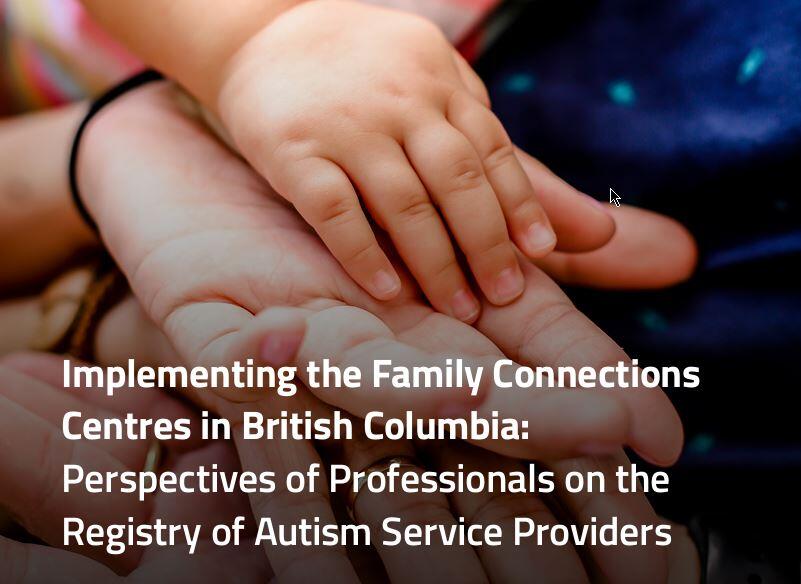Therapy Centres without Therapists?
Clinicians expected to staff the newly announced Family Connection Centres (FCCs) across the province are concerned about its effectiveness, a survey carried out by researchers at Simon Fraser University reports.
‘Implementing the Family Connection Centres in British Columbia: Perspectives of Professionals on the Registry of Autism Service Providers’ (RASP), is based on a survey of 1,000 clinicians listed on the RASP. It received 485 responses – an unusually high response rate. The results are unambiguous:
- Only 9% of respondents “agreed/strongly agreed” that the new Family Connections model will be effective in addressing the needs of all children requiring support.
- 37% of RASP professionals reported that they were unlikely/very unlikely to work for an FCC.
- 42% responded that they did not have enough information to decide.
- 75% of respondents agreed/strongly agreed that quality of care will be compromised within the proposed FCC model.
- 82% agreed/strongly agreed that this new model will lead to cumbersome bureaucracy.
- Qualitative analysis of open-ended responses revealed major concerns (e.g., two-tiered system, poorer quality of services, long waitlists).
In October 2021, the Ministry of Children and Family Development (MCFD) announced over 40 Family Connection Centres as a more equitable system for children with disabilities requiring therapeutic and support services. The FCCs were announced as a response to criticism of MCFD’s long standing policy of limiting support to services for children with disabilities unless they have a diagnosis of autism.
The announcement has been met with intense criticism from diverse organizations, especially those representing children with autism, because it entails the ending of individualized funding and expands the number of children who will be served, by at least a third, without making a commitment of significant new funding. This has raised the fears that the centres will be beset with long waiting lists as they will not be able to serve the number of children who require services given the province-wide shortage of clinicians.
Clinicians on the RASP include Behavior Analysts, Occupational Therapists, Speech-Language Pathologist and Physical Therapists who provide therapy to children with a wide-range of disabilities, in addition to autism. This makes the survey relevant to the issue of how these new centres will attract staff given wide-spread shortages of these professionals in both the private and public sectors and the higher wages in the private sector.
Dr. Grace Iarocci, Professor of Psychology at SFU and Director of the Autism and Developmental Disabilities Lab who led the research explains:
“The current system does need extensive reform as all disabled children need skilled support but creating physical centres does not address the human resource shortage that has been created because of lack of public funding to train and pay clinicians – especially Indigenous clinicians whose communities are particularly underserved.”
Deborah Pugh, Executive Director, ACT – Autism Community Training highlights the fears among families:
“The concern is that these centres will warehouse all children with disabilities together, regardless of their individual needs, negating decades of developing individualizing supports in communities allowing families to make choices that fit their child. Indigenous leaders have highlighted this concern which is particularly difficult for families who have experienced the legacy of residential schools, but it is shared widely by families who have experienced rejection from government systems – especially public schools.”
To speak with Dr. Grace Iarocci and for more information on this report, contact Vanessa Fong at [email protected]
For more information on ACT – Autism Community Training, contact Deborah Pugh, at [email protected]
